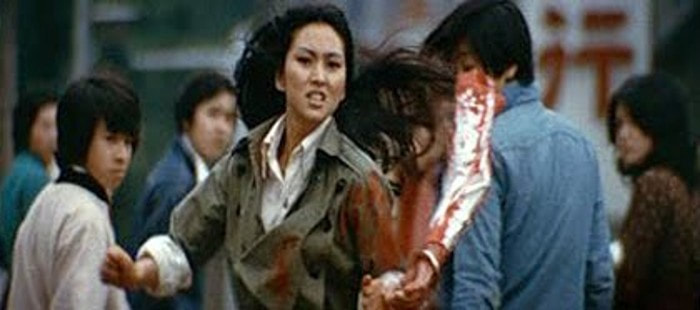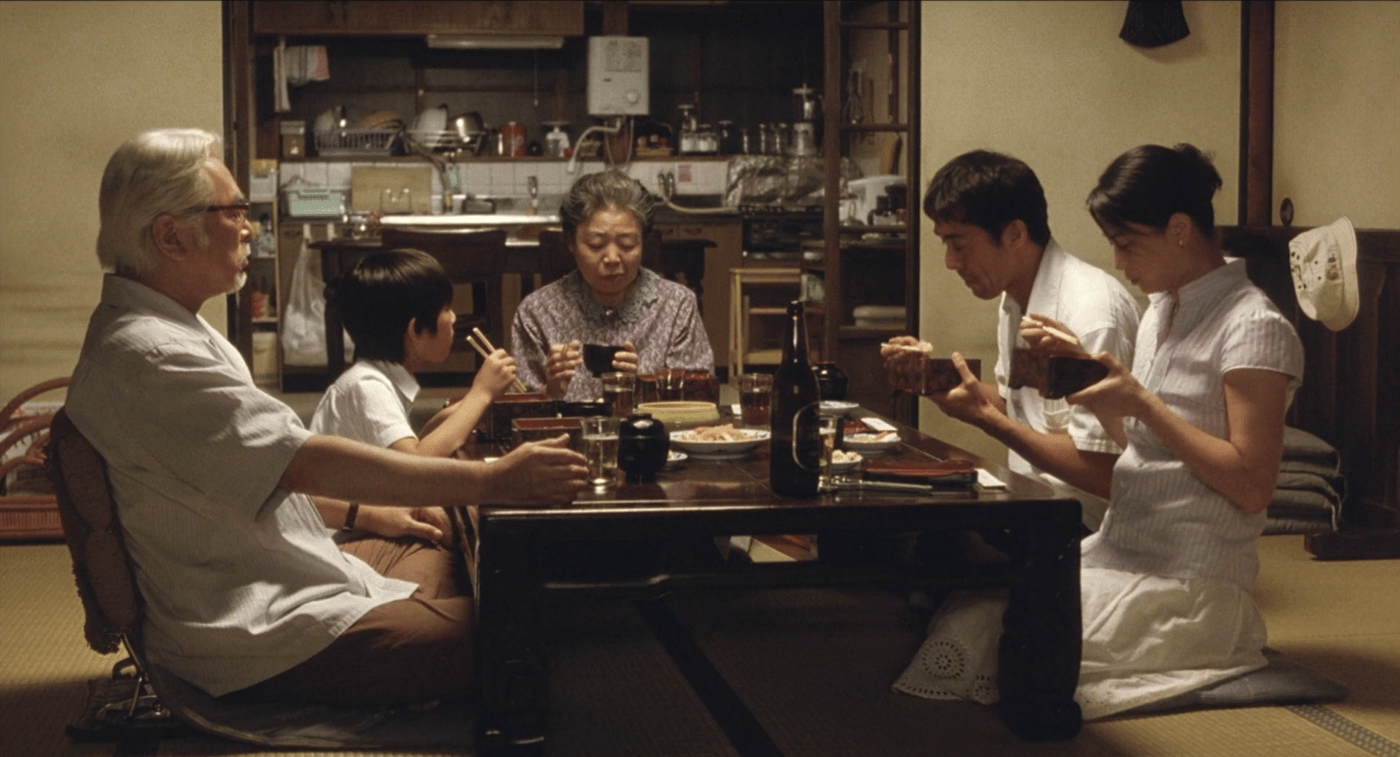
In an effort to simplify the human experience it is common to claim that there are only two emotions, fear, and love. Oprah and Dr. Phil popularized this idea and taught that all other emotions are an outgrowth of these two emotions. It is not entirely inaccurate, but the problem lies in the word love. Fear is easy to define in concrete terms. We have a specific organ that is in charge of fear, our amygdala. When it is activated it sends a cocktail of norepinephrine and cortisol into our bloodstream and sets up a choice between fight, flight, or freeze.
If you turn off the amygdala and look for its opposite you won’t find love. There is no hormone or gland that causes love, but what you will find is trust. If norepinephrine and cortisol are fear, oxytocin and serotonin are trust. Love is a cultural idea that can be constructed once trust is established.
Each of the adolescent characters in Raising Victor Vargas has difficulty with trust and as a result, they are unsure of what they want. Their lack of life experience draws them toward sex because sex is the simplest, least abstract element in the whole relationship equation. It is easier to want sex, pursue sex, and have sex than to deal with loneliness and a need for intimacy.
Victor is caught up and confused by these desires for sex and intimacy. He postures by the public pool trying to project confidence and swagger. Then he sees Judy. She is tall and beautiful and the boys in the neighborhood see her as unattainable. Victor is unfazed and vows to have her.
Judy is an edgy young woman who mostly wears a scowl. She sits by the pool swatting men away like flies. Victor approaches her with a self-conscious saunter. A stereotype of an adolescent in action. Judy tries to dismiss him but he is agile with his banter. Still, he can not get through to her. Victor and Judy are enacting a ritual that allows for a first tentative exchange. It is a first foray toward intimacy but it is limited by a complete lack of trust. The two can exchange words but they do not permit each other to enter inside any of their boundaries. The walls are up and the two of them are just peeking from parapets.

The youth that populates Victor’s neighborhood is only just becoming self-aware. They try to keep up an appearance of tough independence but these are not gangbangers or thugs. They present a rough exterior to buoy themselves in a rough neighborhood. The whole concept of “cool” is the idea of not being emotionally available or expressive. You are not easily rattled or seduced. Each character maintains a facade of cool in order to keep everyone safe from emotional harm.
Victor lives with his grandmother and his younger sister and brother. Each of them struggles to find their own way forward. The most difficult and entrenched of the group is the grandmother. She is afraid of everything. She is Catholic and authoritarian. If she had her way she would keep all three children imprisoned in the house and only allow them to leave on Sundays for church. Catholicism is predicated on humans being sinners. We are not to be trusted. Humans are dangerous creatures prone to temptation and distraction. If you are afraid of people the only rational response is a hefty, unrelenting dose of law and order and grandma lays it down with an iron fist. She has no faith in her children to make “good” choices, she does not trust them and so insists on controlling her children’s every move.

The film was directed by Peter Sollett in 2002 and written by Sollett and Eva Vives. It is an expansion of a previous autobiographical short called Five Feet High And Rising that Sollet and Vives released two years prior. The cast for both films was largely made of kids from the actual projects where Sollett grew up on the lower east side of Manhattan. The film requires a lot of its two leads, Victor Rasuk and Judy Marte. Although untrained they manage to present the necessary transparency so we can see inside them even if they can not. We see the thinness of their facades and hope they will have the courage to lower them.
Raising Victor Vargas was filmed on location, where Sollett grew up. The camera is mostly hand-held but is kept steady enough so as not to draw undue attention. The film feels raw but like its characters, it is more sophisticated than what we see on the surface. Sollett wants us to feel the way the characters feel, suspicious, and on guard.
The lack of trust displayed in the film indirectly implies what life in their neighborhood is like. It is a place where a woman is obliged to act visibly angry as she walks down the street or she will be assailed with aggressive invitations and comments. Even with a tough display, she will still be solicited. Just as women have to walk a gauntlet so do the young men who are glared at and tested by other young men. The whole neighborhood fears young men, distrusts young men. In such an atmosphere it is difficult for intimacy to find a foothold.
We are shown how different characters react to this atmosphere. Judy’s younger brother Carlos wears his heart right on his sleeve for everyone to see. He is vulnerable but he avoids all the game playing by being honest and direct. He comes off as awkward and a little needy but he finds a partner in the end.
Judy seems most directly aware of the specific need for trust. Victor’s transformation from lothario to earnest suitor is gradual and happens at least partially without his knowledge. However, Judy’s transformation is deliberate. She makes a choice to trust Victor. When they have their climactic breakthrough they have a long hug before their first kiss. It is the hug that matters. The hug is the concrete result of their trust.
Raising Victor Vargas is the kind of film that makes you miss the characters when it’s over. It’s a compelling film, well crafted and well told.

Epilogue
On the strength of Raising Victor Vargas, I decided to watched Solett’s next film Nick and Nora’s Infinite Playlist. This second film came out in 2008, six years after the first. RaisingVictor Vargas was made on an $800,000 dollar budget, Nick and Nora’s Infinite Play List cost $10,000,000. Nick was played by Michael Cera, and Nora by Kat Dennings, both well-established actors. The script was based on a novel.

Raising Victor Vargas was essentially a drama, where Nick and Nora’s Infinite Play List was more of a teen rom-com. Their respective goals as films were not the same, but as a film, Nick and Nora’s Play List is far less successful, even on its own terms. The characters are hard to understand. Their motivations are unclear. Michael Cera plays the exact same awkward and nervous teen he plays in all of his films, and the glamorous and beautiful Kat Denning is supposed to be a girl next door.
The richness and sincerity of Raising Victor Vargas are lost in Nick and Nora’s Infinite Playlist. Having a huge crew and truckloads of lights can do a lot for a film but in Nick and Nora’s Infinite Playlist it only serves to make the film look like hundreds of other Hollywood productions churned out like so many Big Macs. The polish afforded by the budget just results in the film feeling ordinary and banal.
There is nothing wrong with having a big budget but when Solett had a small one he used what he had and met the challenges of independent filmmaking with creativity. $10,000,000 dollars doesn’t stop you from being creative but it can grease the wheels in such a way that you glide easily into a comfortable mainstream of mediocrity.

If you enjoyed this article click here for more
www.filmofileshideout.com/archives/sean-bakers-tangerine



